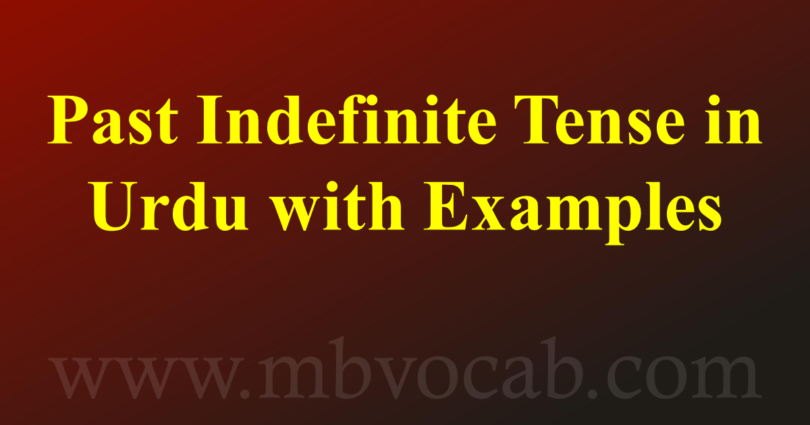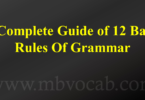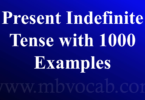Past Indefinite Tense in Urdu and Hindi with Illustrations
The Past Indefinite Tense is employed for actions that commenced and concluded in the past. It is employed to signify actions that have already taken place and is typically coupled with real-time expressions.
Aiding Verb
In the Past Indefinite Tense, the aiding verb is ‘did,’ and it is used with both singular and plural subjects. In affirmative sentences of the Past Indefinite Tense, we generally omit ‘did’ and employ the past participle, which is the second form of the verb.
Identification: In Urdu, this tense is often marked by endings such as ‘a,’ ‘ya,’ ‘e,’ ‘e,’ and so on.
For instance:
- He ventured to school.
- They slumbered.
- She departed.
Affirmative Sentences
In affirmative sentences of the Past Indefinite Tense, the second form of the verb is employed.
Simple Sentences: During this era, the second form of the verb is used.
Structure: Subject + 2nd verb + object + period.
- He consumed watermelon. (In Urdu: اس نے تربوز کھایا۔)
- I crafted volumes of poetry. (In Urdu: میں نے شاعری والی کتابیں لکھیں۔)
Negative Sentences
In negative sentences of the Past Indefinite Tense, ‘did’ is utilized as an auxiliary verb. Following ‘did,’ ‘not’ is used to indicate the negation, and the infinitive form is employed as the main verb in this tense.
Negative Sentences: In this timeframe, we employ the base form of the verb in negative sentences.
Structure: Subject + Did + 1st verb + object + period.
- He did not consume watermelon. (In Urdu: اس نے تربوز نہیں کھایا۔)
- I did not compose volumes of poetry. (In Urdu: میں نے شاعری والی کتابیں نہیں لکھیں۔)
Interrogative Sentences
In interrogative sentences of the Past Indefinite Tense, the auxiliary verb ‘did’ is placed at the beginning of the sentence. The subject follows, and a question mark is used at the end of the sentence to signify a question.
Interrogative Sentences: To construct interrogative sentences in this tense, we place the auxiliary verb at the outset of the sentence, followed by the subject. A question mark concludes the sentence to denote it as a question.
Structure: Did + Subject + 1st verb + object + question mark?
- Did he consume watermelon? (In Urdu: کیا اس نے تربوز کھایا؟)
- Did I compose volumes of poetry? (In Urdu: کیا میں نے شاعری والی کتابیں لکھیں؟)
Formal Sentences
In formal sentences of the Past Indefinite Tense, ‘did’ is utilized at the start of the sentence, and ‘not’ follows the subject.
Formal Sentences: In this timeframe, we utilize the auxiliary verb at the onset of the sentence, with ‘not’ following the subject.
Structure: Did + Subject + not + 1st verb + object + period.
- Did he not consume watermelon? (In Urdu: کیا اس نے تربوز نہیں کھایا؟)
- Did I not compose volumes of poetry? (In Urdu: کیا میں نے شاعری والی کتابیں نہیں لکھیں؟)
Informal Sentences
In informal sentences of the Past Indefinite Tense, the contraction ‘didn’t’ is employed.
Informal Sentences: In this era, we use the shortened form of the auxiliary verb.
Structure: Didn’t + Subject + 1st verb + object + period.
- Didn’t he consume watermelon? (In Urdu: کیا اس نے تربوز نہیں کھایا؟)
- Didn’t I compose volumes of poetry? (In Urdu: کیا میں نے شاعری والی کتابیں نہیں لکھیں؟)
Four Hundred Instances of the Past Indefinite Tense
Here is a compilation of four hundred instances to aid in refining your grasp of English grammar tenses. These examples will enable you to complete your assignments adeptly and proficiently.
Affirmative Sentence Examples
- He fastened the ribbon securely.
- He came into contact with my wristwatch.
- He comprehended my teaching style.
- He availed himself of my mobile phone.
- He strolled out early in the morning.
- He diligently cleaned the neighbors’ cars.
- He observed the latest movie scene.
- He donned the azure attire.
- He paid a visit to his uncle’s abode.
- He emerged victorious in the arduous match.
- He toiled relentlessly day and night to attain success.
- Allama Iqbal penned numerous volumes on poetry.
- She spotted Asif along the way.
- She dispatched me the email address.
- She illuminated the surroundings.
- She exhibited the latest clothing collections.
- She melodiously sang a romantic ballad.
- She disregarded all the prerequisites.
- She discussed the business cycle.
- She remained there on your behalf.
- She halted the train without any justification.
- I captured an image of the palace.
- I engaged him in a conversation about various spices and herbs.
- I savored the novel dish prepared by the renowned chef.
- I had apprised you prior to your departure.
- I hurled the ball beyond the field’s boundary.
- I scrutinized the vicinity and caught sight of Asif.
- They encountered him at the restaurant.
- They unfastened the windows and doors.
- Teachers permitted students to engage in dishonesty.
- They exhibited an impressive performance in the match.
- They covered the table with a lid.
- They invested in opulent apartments.
- They furnished me with your house’s location.
- We cultivated plants within our garden.
- We overheard your request for assistance.
- We deposited all the funds in the bank.
- We traversed the railway track.
- We stumbled upon the treasure on the island.
- You pursued your aspirations ferv







